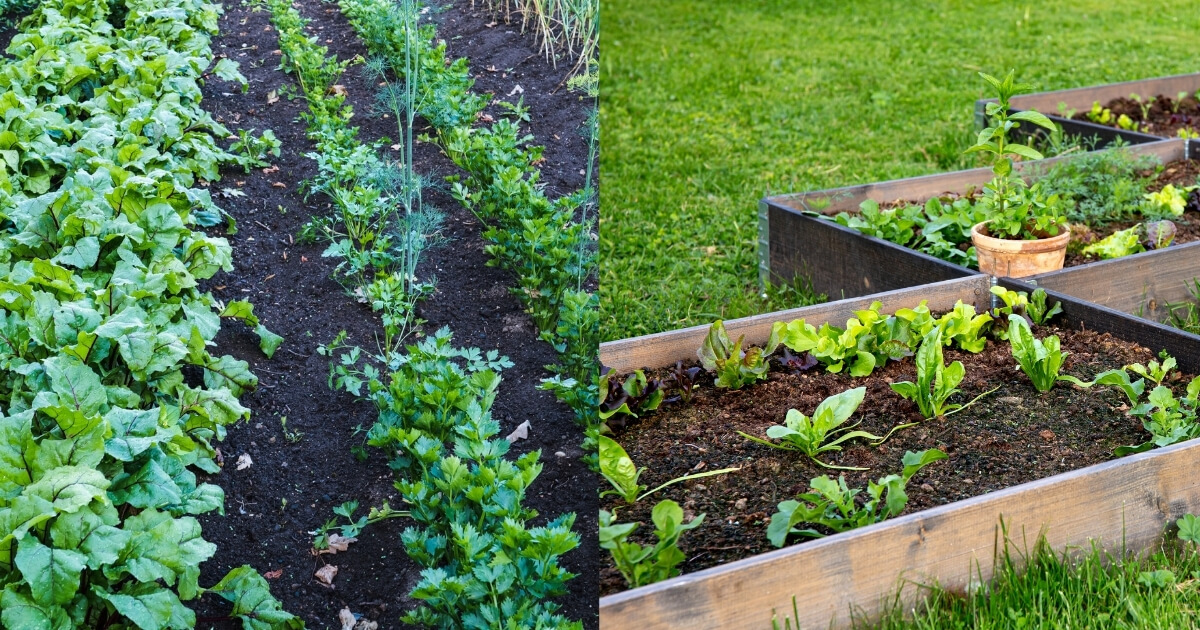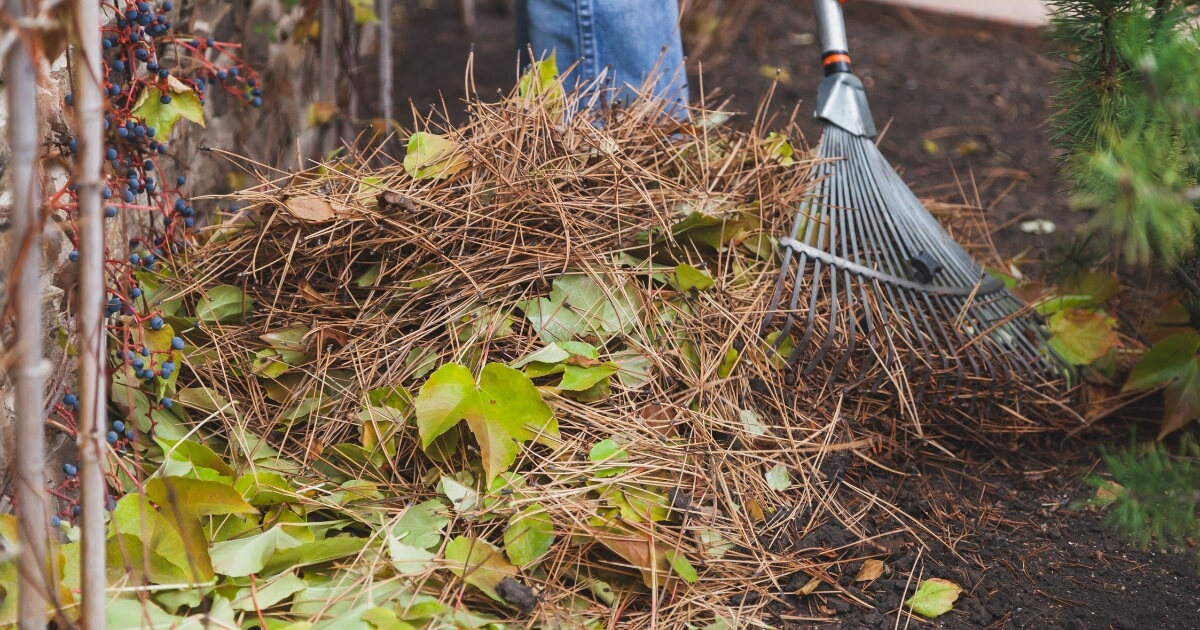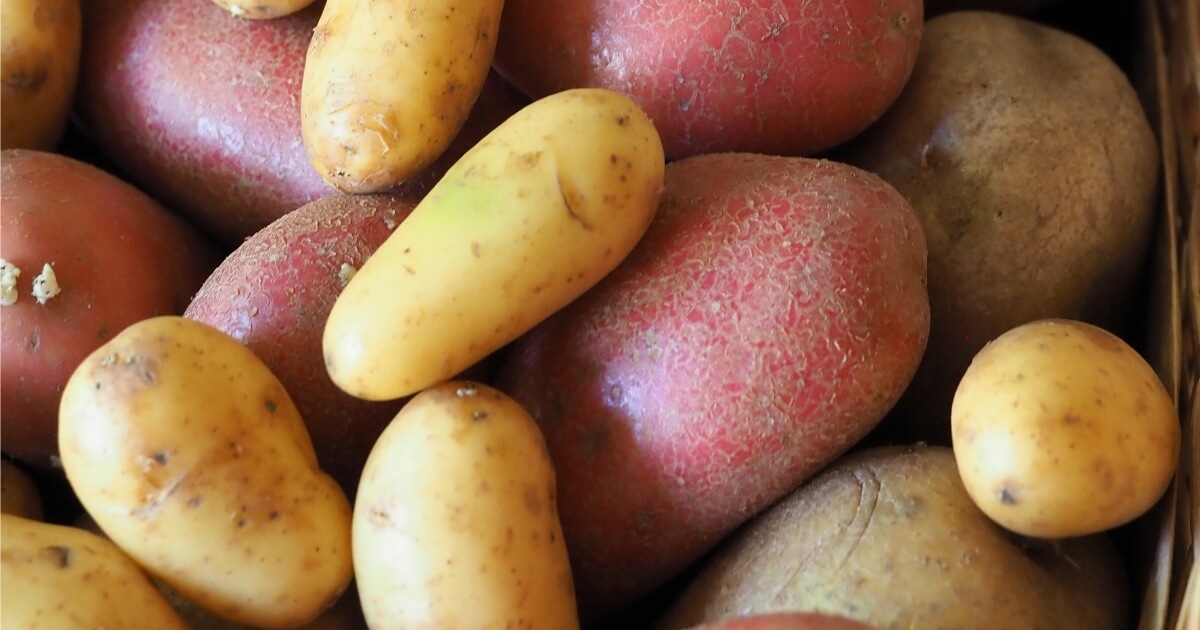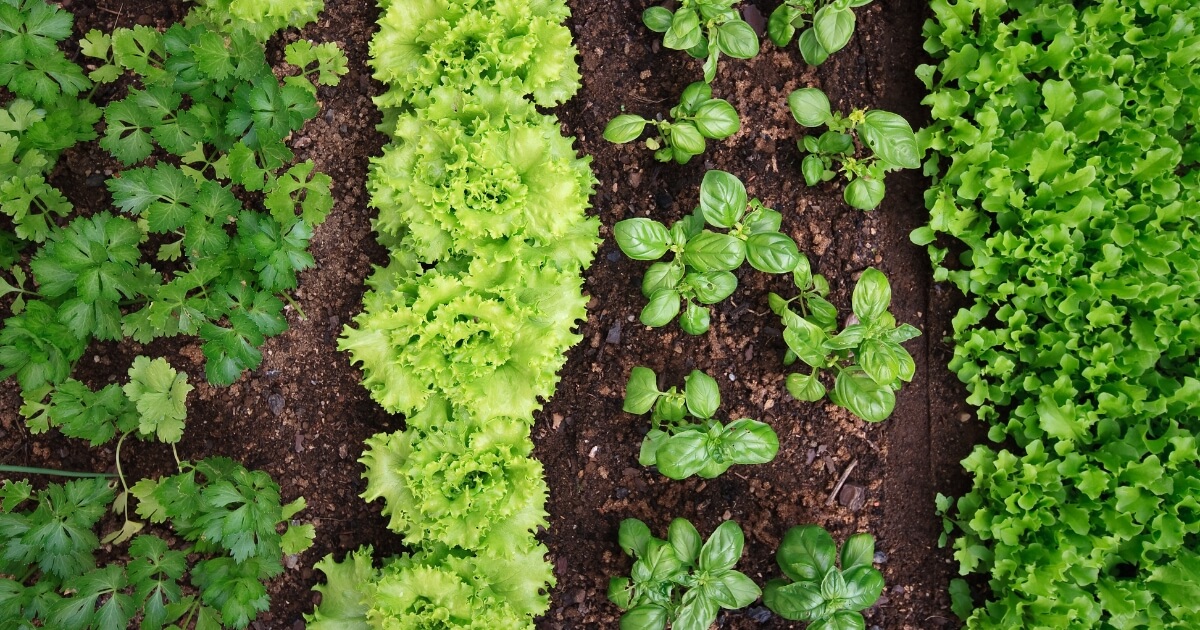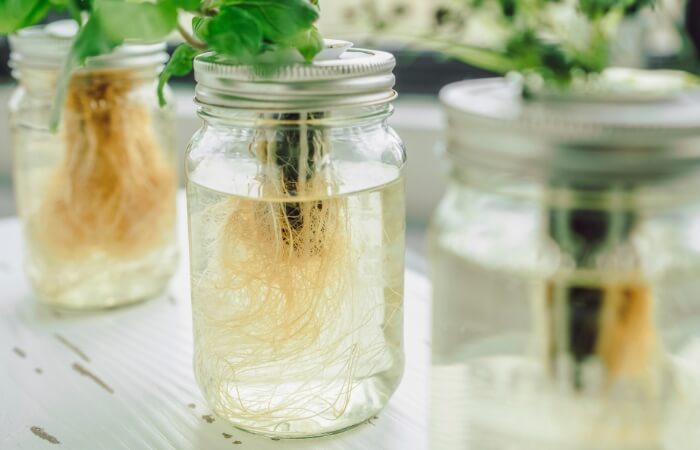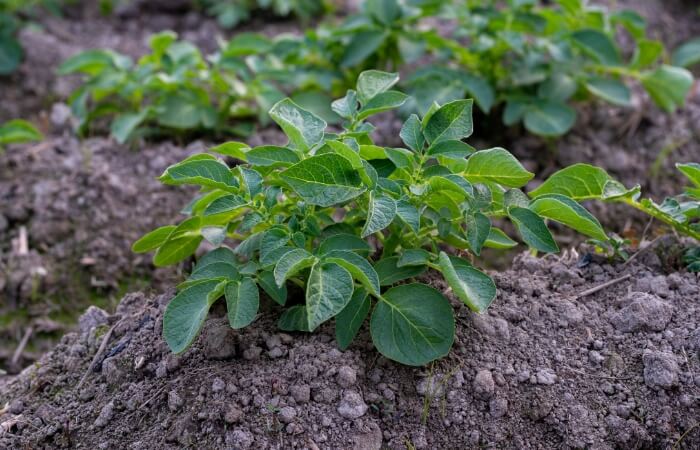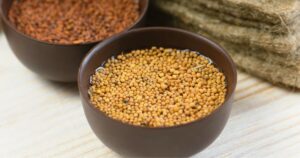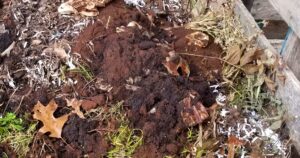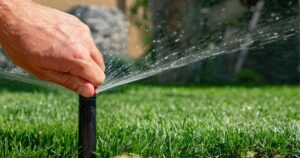There’s a plant for nearly every type of soil pH, so a testing meter is critical to determine your current soil conditions and what you need to do to make it inviting for the plants you wish to grow.
Soil with the proper pH level is the best way to increase your garden’s health, beauty, and crop production, but what’s the easiest way to test pH?
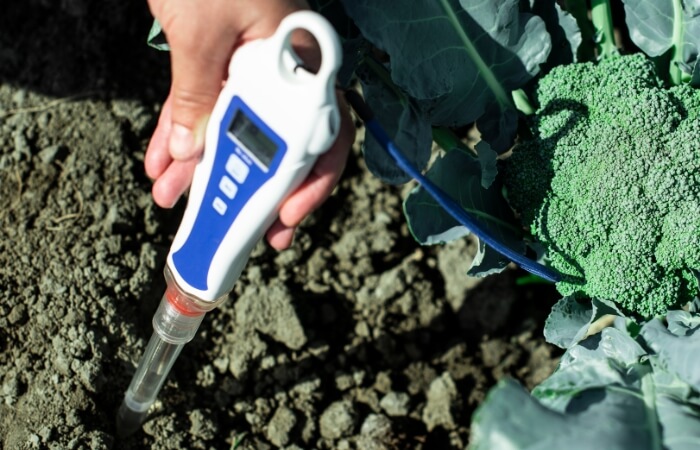
The answer is to use one of the best soil pH meter testers I review in this buying guide.
Along with each model’s pros and cons, I also explain the benefits pH testers bring to your gardening game and highlight the features to watch out for.
Beginner to expert gardeners can rely on soil pH meters to quickly reveal what adjustments are necessary to let plants thrive, so keep reading to find the perfect tester for you!
Best Soil pH Testers
Best Overall
Bluelab METMULTI Multimedia pH Meter

Reasons To Buy
- Highly accurate glass-probe reading for both pH and temperature
- Comes with probe storage cap dibber to pre-poke holes in media or soil
- Easy-to-read backlit LED display,”hold” functions, and quick-start guide increase convenience
- Waterproof casing ensures protection of internal components
- Automatic temperature compensation and calibration/low battery alerts improve performance
Reasons To Avoid
- Cleaning kit and calibration solutions will be an extra purchase
- Meter can break easily if dropped
- Higher price-point than other pH testers
The Bluelab pH meter uses a professional-quality glass probe to measure the pH and temperature of soil and liquids and other growing media like coco coir or Rockwool.
The meter is digital, which provides more precise readings of pH between 0 to 14, with a backlight to improve viewing in low-lighting situations. The unit also features an auto-off setting and alerts when it senses a low battery or needs calibration, increasing ease-of-use.
I like the versatility of this pH meter that allows you to quickly test liquid fertilizer solutions you mix up so you can feed your plants at a safe pH level.
The cap/dibber attachment is a handy bonus that lets you create the perfect size hole in dirt or media to perfectly fit the probe.
The Bluelab PENSOILPH pH Pen makes the list for its digital accuracy, wide pH range, and ability to read the pH of more than only soil. This model is best for serious gardeners who grow in soil or practice hydroponics and homeowners who enjoy home brewing or want to check the pH of their pool or drinking water.
Best Ready-To-Go Tool
Gain Express Soil pH And Moisture Meter

Reasons To Buy
- Extra-long and durable metal probe for use on a variety of plant types
- No batteries mean no extra cost or worry about internal corrosion
- Very accurate readings mean better control of plant health
- Upward facing display is easier to read while standing
- Dual testing of both pH and moisture improves soil knowledge in one step
Reasons To Avoid
- Display size can be a bit hard to read
- Some users report poor accuracy when compared to professional lab samples
The Gain Express Soil Ph and Moisture Meter is a favorite because it doesn’t require soil pre-prep to take accurate readings, saving time and hassle.
The high quality of the metal electrode quickly displays pH levels between three and eight and moisture status, which is sufficient for most general garden needs.
Related | Best Soil Moisture Meters
The probe is over 11-inches long, which means you can reach both shallow and deep root systems for the cost of only one tester.
I appreciate how simple this tester is to use and that it requires no batteries to run, which means you can count on it to work when you need it. I also like how the face of the meter faces upwards, which avoids the need to bend down to see the reading.
The Gain Express Soil Ph & Moisture Meter gets top marks for the probe’s versatile length and no battery requirement. This tester is best for homeowners who want one ready-to-go tool to quickly check both pH and moisture levels of soil in both indoor and outdoor plants of any size.
Best For Heavy Usage And Testing
Kelway Soil pH And Moisture Meter

Reasons To Buy
- Works to read both pH and moisture levels, two critical gardening factors
- Electrode readings are very accurate, so you can amend your soil with confidence
- Comes with a carry case and cleaning film for added convenience
- Upward display face eliminates bending and is easy to read
Reasons To Avoid
- High initial cost investment
- The probe is short, which may not work for deep-rooted plants
The Kelway Soil pH and Moisture Meter is a beefy unit that packs a sensitive electrode for measuring both pH and moisture accurately without the need for chemical or distilled water preparation.
The meter is solidly built and can hold up to season after season of soil testing without failure, which makes it a great value.
The upward face enables quick viewing, and the scale for pH ranges from 3.5 to 8, which should cover everyday gardening needs.
I like that this unit comes with a handy case with a belt loop so you can carry it around hands-free to test the soil around your property. I also appreciate the detailed instructions for use and that it comes with a unique film to clean the probe tip safely.
Kelway Soil pH and Moisture Meter is a soil-testing workhorse that provides accuracy and efficiency in one tool. This model is ideal for homeowners with large areas that need soil pH monitoring and need a tool that can withstand heavy use.
Best Extra-Long Probe
TEKCOPLUS Durable Soil pH And Moisture Meter

Reasons To Buy
- Extra-long probe works for outdoor gardeners, farmers, or indoor plant enthusiasts
- Self-Powered unit never needs costly batteries to operate
- Measures both pH and moisture levels of different soil structures
- Display faces upwards, which makes it easier to read
- pH-guide label right on the unit for quick reference
Reasons To Avoid
- Instructions are lacking for use
- Pricey, but dual-readings increase value
These TEKCOPLUS Soil pH and Moisture Meter is the perfect solution for gardeners who need a long probe long enough to reach the root depth of just about any landscaping plant.
The durable probe and casing can withstand constant use without breaking, so you can check a pH range between three and eight and adjust your soil for optimal plant health.
The self-powering operation is another great feature that eliminates battery expense, increasing the meter’s overall value.
I like that the probe reads consistently in different soil types, and the metal probe is waterproof, which extends the life of the meter. Being able to do quick moisture-level checks with the same tool is also convenient.
The TEKCOPLUS Soil pH/Moisture Meter makes our top picks for its long probe, long-lasting durability, and battery-free operation. This model is best for gardeners who want a reliable unit that provides accurate soil pH readings for both landscaping and indoor plants.
Best Budget Pick
Luster Leaf Rapitest Soil Testers
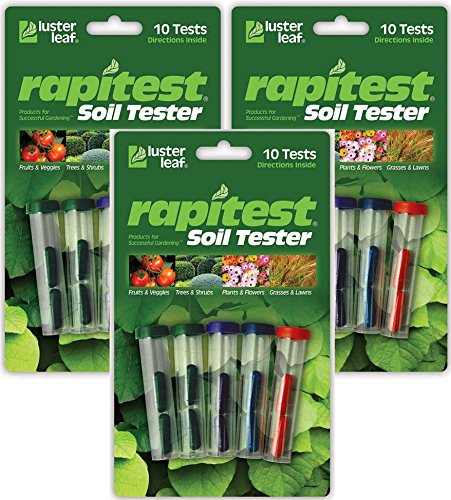
Reasons To Buy
- Separate tests for pH, and Nitrogen, Potash, and Phosphorus levels for precise readings
- An affordable option for budget-conscious gardeners
- Accurate results and easy-to-compare color-coded readings
- Fun and easy way to check the status of your planting soil
- No worry about breakage or failure of digital or analog meter parts
Reasons To Avoid
- Tedious to use, with materials easy to spill if not careful
- Sometimes colors don’t correlate with chart colors exactly
The Luster Leaf Rapitest Soil Tester three-pack is the affordable testing solution to get Nitrogen, Phosphorus, Potash readings as well as pH so you can maintain plant health.
The sampling works within the included tubes and uses color comparison to a reference chart to determine results. The clear instructions and accurate results are impressive for such a low-cost soil pH tester.
I like the fun, science-experiment feel of using this testing kit, but it does require a sharp eye to keep the capsule powder from spilling outside the tube.
The Luster Leaf Rapitest is on this list because it’s extremely affordable, accurate, and eliminates the worry that comes along with owning an expensive metering tool. This kit is best for homeowners who want detailed readings of more than just soil pH to pinpoint nutrient-deficiency issues.
Do You Need A Soil pH Meter Tester?
Soil pH meter testers are tools that detect and display the alkalinity or acidity level in the ground where plants are being grown.
Some units work by inserting a metal probe into the soil, where the meter performs a voltage test to determine hydrogen ion levels that determine pH levels. The test requires two electrodes on a single probe (or one each on two separate probes) comes into contact with the soil to work.
Some test kits are manual and require you to collect the soil and mix it with water or chemicals to arrive at the pH level.
All meter testers allow you to see the chemistry of your soil so that you can create the best environment for a particular variety of plant.
Soil pH tester readings can run from 0-14, but most soil meter testers offer a tighter range of between 3-8 since most soil pH levels fall between this range.
It’s very important to understand that the difference between each number on the pH scale is exponential. For example, a six reading on the tester means a tenfold increase in the acidity level over a reading that is five.
Related | How To Test Soil ph With A pH Meter
Types Of Soil pH Meters
Let’s look at the differences between each type of pH tester.
- Electronic soil pH meter – Electronic meters may or may not run on batteries, but all use probes that go into the soil and a digital or analog screen to display pH readings. These types of meters are quicker and easier to use, but lab-quality, reliable results come at a higher price tag. Inexpensive meters have dubious accuracy and tend to break quickly.
- Chemical dye soil pH test – Chemical dye kits use a vial that you use to mix in a soil sample and powdered chemicals that react, change color, and allow you to compare it to a pH level chart. These tests can be quite accurate, as long as the soil you’re testing is not full of pesticides and you follow the testing instructions to the letter.
- Strip soil pH tester – This litmus-paper-style test dips into a mixture of soil and water for several seconds and changes color to assess pH level. You then hold the test strip next to the color chart to locate the matching shade and its corresponding pH number.
Benefits of Using Soil pH Meter Testers
You certainly need a soil pH meter if you maintain a vegetable garden, extensive home or commercial landscaping, lawns, outdoor container or raised-bed planters, orchards, and indoor plants because they provide these benefits:
- You get immediate results, unlike soil samples that you must take to a local extension lab for testing
- Let you quickly adjust the soil to suit a specific plant’s pH needs
- Eliminates wasting fertilizer where it’s not needed
- Allow for routine testing to perfect pH levels, so plants grow to their full potential
Things To Watch Out For
Let’s look at the things you need to consider before making a final decision on which type of soil pH meter tester is best for your needs.
Accuracy
The whole point of owning a soil pH meter tester is to know how to amend your land so your plants can flourish, so accuracy should be the highest priority.
For the most accuracy, you may need to pay a bit more for a lab-quality electronic-style pH tester. These meters have sensitive probes that can detect minute changes in soil acidity.
Strip or dye pH testing is also quite accurate, but some people have a hard time differentiating between the shades on a color chart to determine the pH level.
You also need to perform the process as instructed with no soil-to-dye ratio mistakes that could alter the final reading.
Display Readability
The display face and scale numbers of any meter need to be large enough to read easily. An upward-facing display is helpful to avoid kneeling to view the gauge.
The scale should have separate color bands for pH, light, and moisture for multi-purpose testing meters.
Look for a backlight feature on digital testers to increase visibility.
Length of Probe
You must always check soil pH at the root level, which can mean two inches or up to ten or twelve inches deep.
A tester with a long probe allows you to check a much wider array of plants and can work well for indoor and outdoor potted plants. Short probes are viable for certain shallow-rooted plants or general soil pH testing about your property.
Design and Durability
Probes are typically the first thing to malfunction on a soil pH tester, so check that it offers durable steel, waterproof probes that won’t easily snap off, bend, or corrode, which can cause a false reading.
Check the maintenance requirements of the meter. A wipe with a cloth or special cleaner should keep the sensitive probe tips clean on most units. Fancy pH meters may need specific chemicals for cleaning or even need calibration from time to time.
Versatility
Many soil pH testers also offer a moisture meter or light meter within the same product. These extra features are beneficial to avoid over or underwatering and poor lighting so that you can perfect your plant-care routine.
Another aspect of versatility is a tester that allows you to check pH levels from 0-14 in a substrate or pure liquid as well as soil. Most of these testers are digital and expensive, but well worth the investment if you’re doing any type of specialty gardening.
